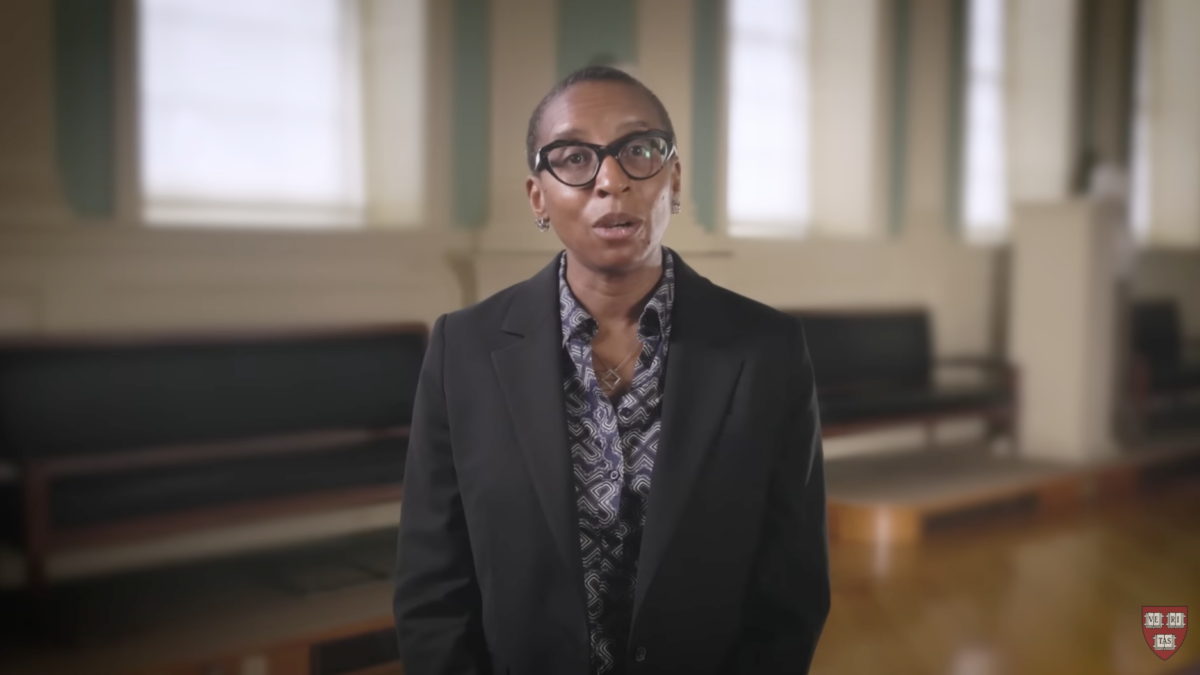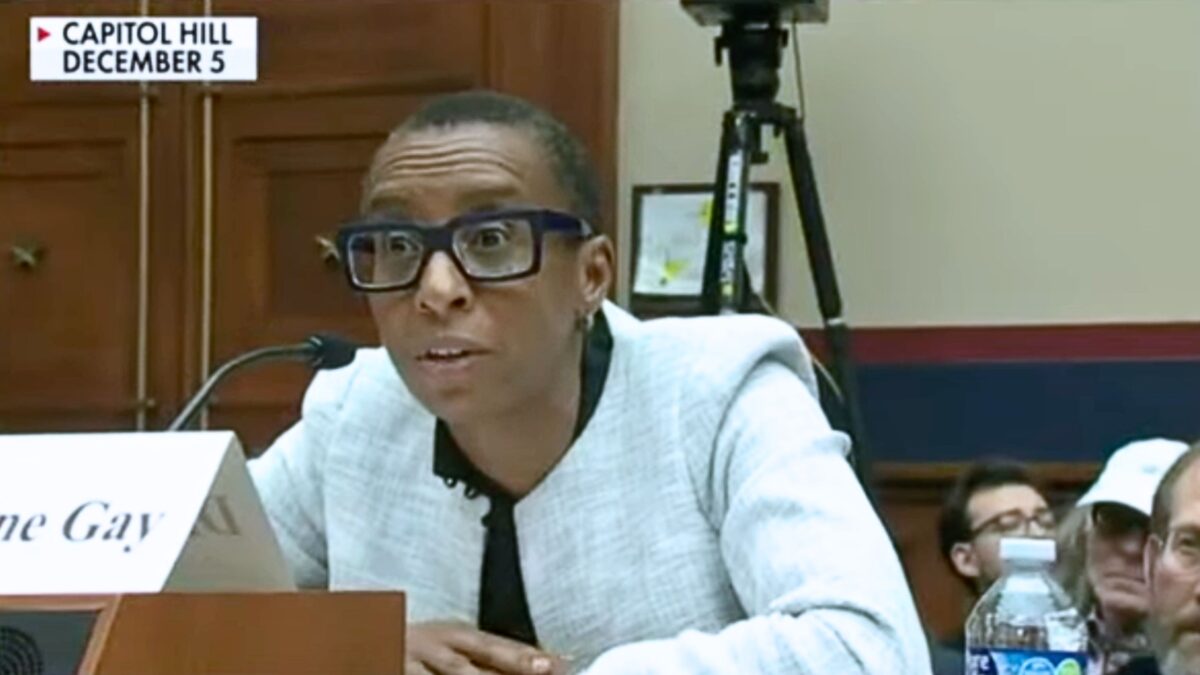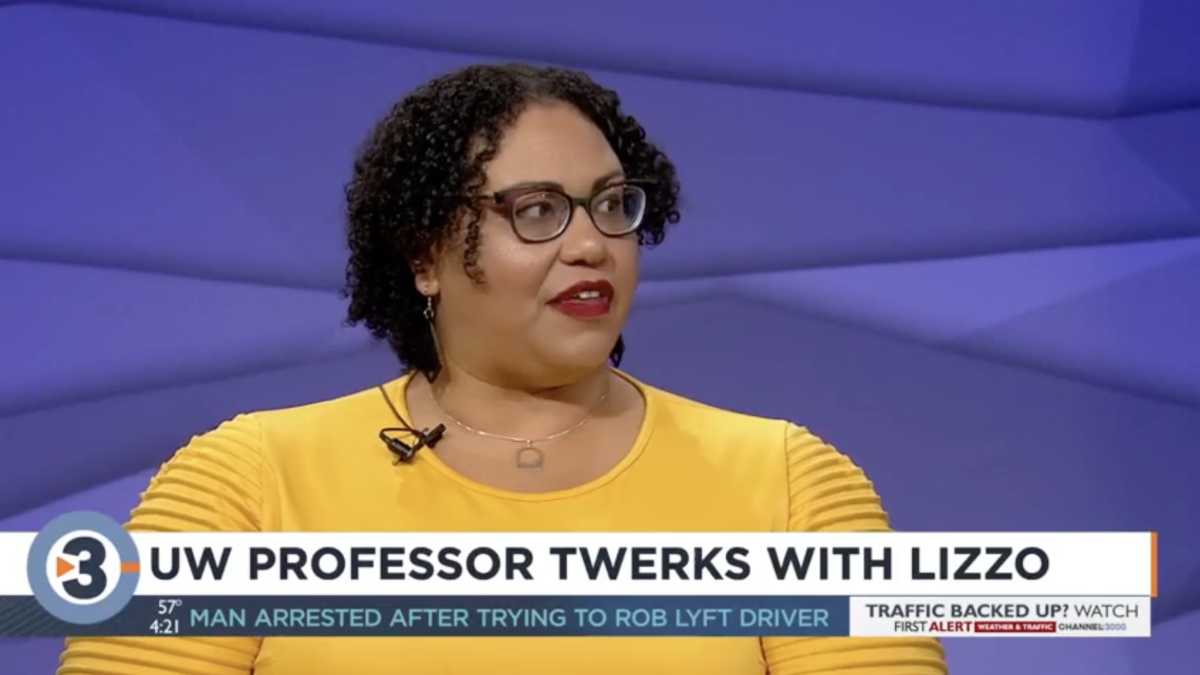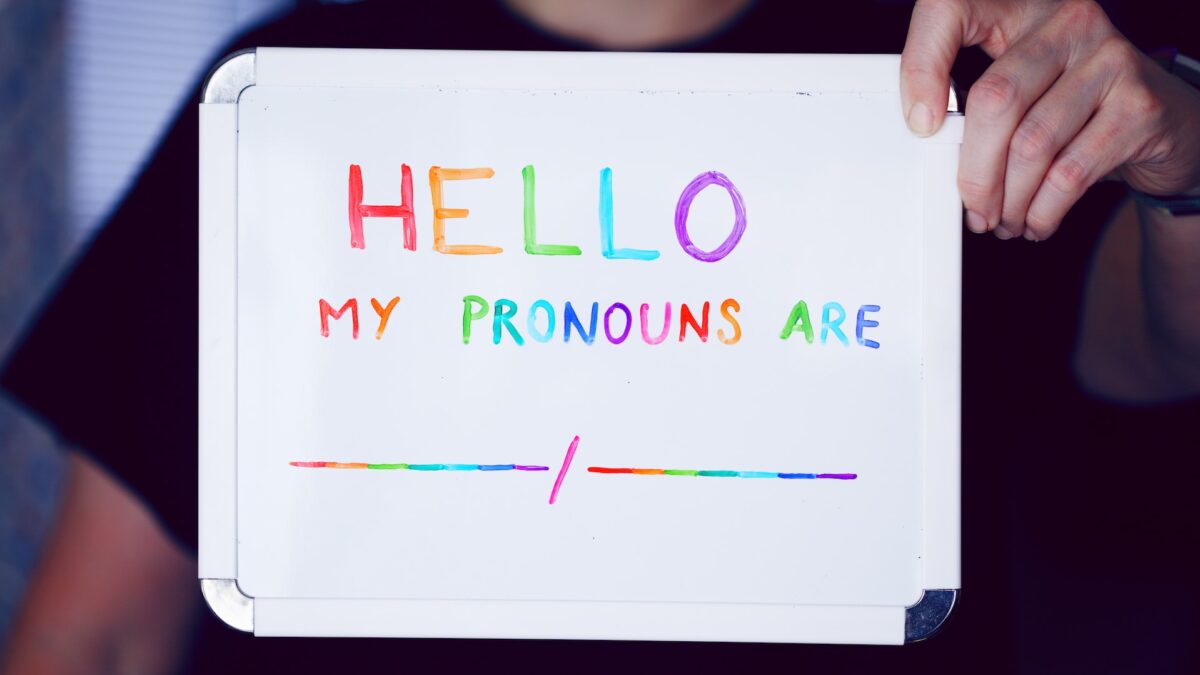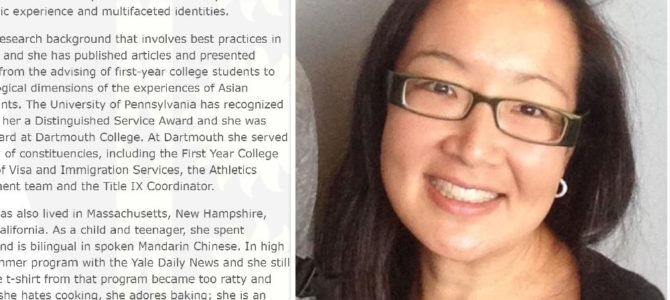
Last week a Yale University dean got herself into hot water when students discovered she was the author of what were deemed culturally “insensitive” comments on the Yelp review site. June Chu, dean of Yale’s Pierson College, quickly offered an apology that Yale College dean Jonathan Holloway seemed to accept. Since then, however, Chu has been placed on administrative leave.
After quickly reading the offending reviews in screenshots made available by the Yale Daily News, I found myself scratching my head at the hubbub. Where was the content that Pierson College head Stephen Davis had gone so far as to call “reprehensible”? Was it in this mostly positive review of an establishment called John Davenport’s?

I struggle to see where the offense lies. Is it the humorous comment about the views (or lack thereof)? When did it become unacceptable for someone to self-deprecatingly criticize the city in which she works or lives? I live in Oklahoma, where I hear natives tell Okie jokes all the time. Is it because Chu is of Asian descent that she is not allowed to do some lighthearted needling of New Haven? That attitude strikes me as much more elitist and even racist than engaging in a little kidding around about the local scenery.
Maybe Chu’s “reprehensible” remarks are to be found in this write-up of The Mochi House:

I assume the crime here is the statement, “I guess if you are a white person who has no clue what mochi is, this would be fine for you.” Um, I am a white person who has no clue what mochi is. As such, I’m guessing Chu is right that I would make a less-than-discerning mochi customer. I am not insulted by her statement of the obvious.
Then there is Chu’s review of Donut Crazy. Your guess here is as good as mine. Is it now culturally insensitive to criticize slow service?

In reviews of Junzi Kitchen, Boloco, Town Line Lawn Care, Retro Fitness, and Entertainment Cinemas, Chu employed salty language and made sarcastic references to the rudeness or incompetence of several workers and the obesity of some theater-goers in the concession line. Her words were certainly ungracious and less than kind. But there were no racial or gender-oriented epithets. Anyone who is seeing them is reading them in.
Okay, ‘White Trash’ Is Rude, But Let’s Move On
There are two reviews on which I acknowledge the PC police might be able to build a weak case against Chu. Her review of Criterion Cinemas praises the theater for its lack of “sketchy” crowds “despite it being in new haven [sic]” and her review of Koto Japanese Restaurant asserts it is a great choice for “white trash” and “low class folks,” language which does belie a certain snobbishness unbefitting an academic who has previously called for greater cultural sensitivity. (I would argue that such snobbishness is not at all surprising, but that’s another article.)
I understand the distaste for the label “white trash.” As a Christian, I believe all life has God-given worth. No human being deserves to be called “trash.” Still, as one who comes from what some might call a “white trash” background, I find the outcry at the term to be highly overwrought. In his book on the challenges of growing up in Appalachia’s white working class, J. D. Vance observes that “Americans call them hillbillies, rednecks, or white trash. I call them neighbors, friends, and family” (p. 3). Yep.
In its reporting on Chu, the Yale Daily News quoted one student as saying that Chu’s reviews of establishments in New Haven “make it clear how [she] thinks about people who are different from her, and how she feels about New Haven, the city all of us call home for a few years.” Are we to believe that Yale students never make fun of their fellow students, their teachers, or the town of New Haven, or that they never bemoan the food or service in the Yale University cafeterias? (If so, I have a bridge for sale…)
Ironically, it may have been Chu’s own fault that her Yelp reviews became known at Yale, as according to one student Chu touted her achievement of Yelp “Elite” status in a campus-wide email. That student and others then searched Chu’s Yelp account, discovering the supposedly objectionable material. When Chu’s breaches against PC were made public, she responded with an email stating that she had “learned a lot this semester about the power of words and about the accountability that we owe one another.”
Perhaps she has learned another lesson: if you are a university professor or administrator, you are not allowed to write acerbically frank consumer reviews. If you decide to do so, make sure it’s under a pseudonym. And whatever you do, don’t advertise when you reach “Elite” status, particularly not when you’re already a member of the elite.


